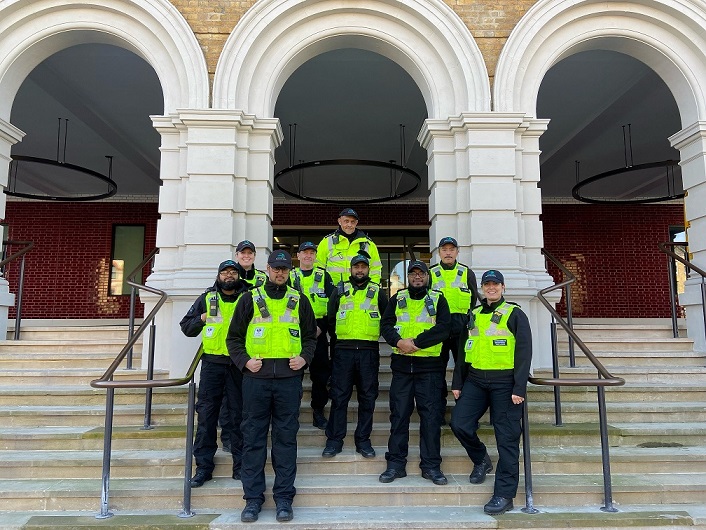Tower Hamlets Enforcement Officers (THEOs)

Help to keep your borough safe
We are recruiting for a number of new Tower Hamlets Enforcement Officer (THEO) roles, to help the police tackle crime and anti-social behaviour and support residents with any safety concerns.
THEOs have police powers under section 50 of the Police Reform Act to obtain a person’s details and to tackle anti-social behaviour, drugs and violence.
They also work with agencies within the borough to help anyone who needs support, such as people who are struggling with substance misuse and those who are sleeping rough.
We are particularly interested in applications from women and people in the local community so we can make sure our THEO service is representative of our borough.
This is part of our ongoing investment in community safety to make sure that Tower Hamlets is safe for everyone who lives, works or visits the borough.
Successful applicants will earn £40,503–£43,701 a year.
The role
We are looking for people with excellent communication skills, a calm manner and ability to work with people from different backgrounds, cultures and ages.
You will be provided with high quality supervision and training, and a range of opportunities to develop in the role. Training includes:
- Community safety accreditation
- Officer safety and breakaway training
- Full first aid course
- Anti-social behaviour (ASB) tools and powers
- Statement writing and case paper preparation
- Safeguarding and violence against women and girls (VAWG) training
- Substance misuse and drug intervention training
- Dealing with vulnerable people
- Mental health awareness training
- Modern day slavery and exploitation training
- Counter terrorism and PREVENT training
- Civil contingencies and local authority liaison officer (LALO) training
Please check back when roles are available again
Your safety
The safety of our officers is always our number one priority. All patrols are done pairs in line with the service risk assessment. Support and counselling are also available to officers through the council's Employment Assistance Programme.
Being a THEO
THEOs are at the forefront of tackling crime and anti-social behaviour in Tower Hamlets. Here, THEOs share some of the reasons they enjoy the job.
Eunice Ndulaka-Okwu has been a THEO for nine years:
“What we do isn’t just enforcement – it’s much more than that. People like to see us because it gives them reassurance and makes them feel safe.
“We also speak to vulnerable people and refer them to further help if needed. The community has really supported us over the years and it is nice to be able to give back to them”
Arifur Rahman joined the THEOs in 2009:
“Being born and living in the borough, I can see the ASB and how it can affect people and their livelihoods. Being a father to three, I wanted to do something about it and play a part in making it better.
“In the years I’ve been a THEO, I know I have helped turn two people’s lives around and I have support and helped so many others.”
Donna Tomlinson, THEO for more than three years:
“The thing I like most about my role is the fact that I have a lot of engagement with the community, whether that’s dealing with anti-social behaviour or doing fixed penalties, or just basically saying hello.
“To get to know the individuals that are in my local area, that’s the thing I enjoy the most, just talking to people, helping people out, trying to tackle any issues, and getting the community on board to understand why we’re doing the things we’re doing.
“I also like encouraging people to actually speak up about any concerns they have, so that the local authority, police and other bodies can deal with the issue.”
Gelu Miah has been a THEO team leader for just over two years:
“One of my favourite things to do in my role is to be out and about patrolling, talking with residents and identifying issues in the borough.
“One of the main reasons I became a THEO is because I’ve lived in the borough and I enjoy meeting the community and talking about the issues that they face, and trying to tackle that.
“The role varies from one day to another. We will have our taskings in the morning, then we’ll go out patrolling in areas where anti-social behaviour has been reported, or going out into the community and engaging with the community.”